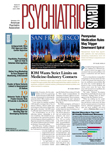Within 24 months, all of the stakeholders involved in continuing medical education (CME) should come up with proposals for reforming the system by which CME is funded, according to the Institute of Medicine.
A new system for funding accredited CME should be developed that is“ free of industry influence, enhances public trust in the integrity of the system, and provides high-quality education,” the IOM stated in a 300-page report released in late April.
The recommendation was one of 16 addressing industry relationships in all areas of medicine. Also included were recommendations that organizations involved in the development of practice guidelines or diagnostic manuals be free of industry influence and have policies in place for transparent disclosure of potential conflicts.
The IOM report, “Conflicts of Interest in Medical Research, Education, and Practice,” is the latest in a succession of responses to the tide of public and congressional interest in pharmaceutical and device-manufacturing company influence over American medicine.
In April leaders of professional medical associations—including APA Medical Director James H. Scully Jr., M.D.—issued recommendations for elimination of industry influence in activities of such associations. Those recommendations appeared in the April 1 Journal of the American Medical Association (Psychiatric News, May 1).
The IOM is prestigious, and because it reports to Congress, its recommendations can be especially consequential. “This is another important step to developing a new paradigm in how medicine and the pharmaceutical and medical-device industries will relate,” Scully told Psychiatric News. “It's very similar to the JAMA article and other recommendations, but the IOM report relates to all of medicine and is much more extensive.”
Scully also emphasized that regarding the recommendations that most directly affect APA, the Association is ahead of the game.
“The recommendation for associations to work with all the stakeholder organizations in CME to revise standards within 24 months probably has the greatest direct impact on APA, although less than other societies because of actions we have already taken such as phasing out industry-sponsored symposia at our annual meetings,” he said.
The IOM recommends that Congress require pharmaceutical, biotechnology, and device firms to report through a public Web site the payments made to doctors, researchers, academic health centers, professional societies, patient advocacy groups, and others involved in medicine. And it calls on researchers, medical school faculty, and private-practice doctors to forgo gifts of any amount from medical companies and to decline to publish or present material ghostwritten or otherwise controlled by industry.
Consulting arrangements should be limited to legitimate expert services spelled out in formal contracts and paid for at a fair market rate. Physicians should limit their interactions with company sales representatives and use free drug samples only for patients who cannot afford medications. (See
Collaborations Beneficial, but Limits Needed for summary of recommendations.)
“It is time to end a number of long-accepted practices that create unacceptable conflicts of interest, threaten the integrity of the medical profession, and erode public trust while providing no meaningful benefits to patients or society,” said Bernard Lo, M.D., chair of the committee that wrote the report. He is a professor of medicine and director of the program in medical ethics at the University of California, San Francisco. “We also need more specific disclosure of the financial relationships that doctors and researchers have with medical industries. This report spells out a strategy to protect against financial conflicts while allowing productive relationships between the medical community and industry that contribute to improved medical knowledge and care.”
In some ways, the IOM report is less stringent than the recommendations spelled out in the JAMA report by medical association directors and others. (Those directors, including Scully, were asked to sign on to the recommendations as individuals, not as representatives of their organizations.) For instance, the IOM does not recommend that organized medicine aim for total elimination of industry support.
“In general, the IOM committee ... supports further restrictions on and oversight of financial associations—but not 'a goal of $0 contributions from industry,' as was recently proposed for professional medical associations,” wrote Robert Steinbrook, M.D., in an editorial in the April 29 New England Journal of Medicine. “Some of the IOM recommendations involve prohibitions, such as bans on faculty participation in companies' speakers bureaus and other promotional activities in which they 'present content directly controlled by industry' and bans on gifts of any amount from medical companies. In some areas, such as research, the committee recommends permitting structured involvement in exceptional cases of physicians who have substantial financial interests in industry but also have expertise that is deemed essential.”
The issue of industry relationships with medicine continues to command the attention of all sectors of medicine. In April both Harvard Medical School and Johns Hopkins University School of Medicine issued reports clarifying existing guidelines and adding new restrictions on how physicians, scientists, and staff at those institutions may interact with industry.
